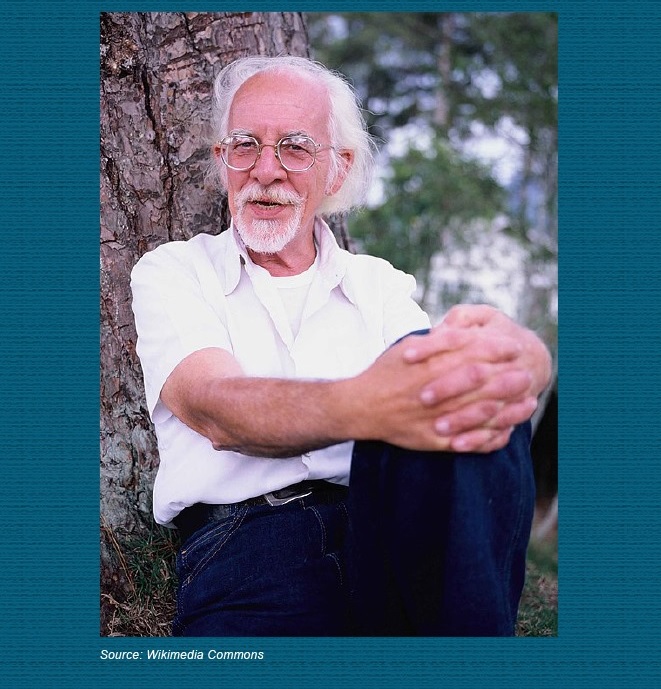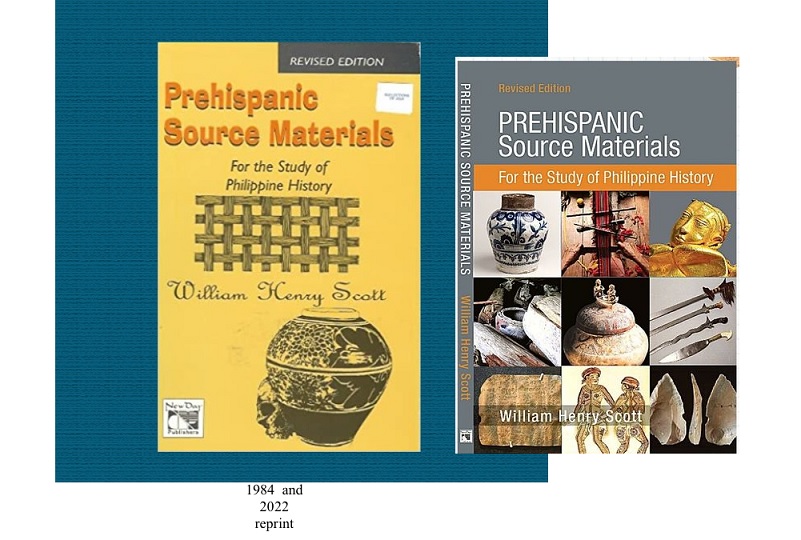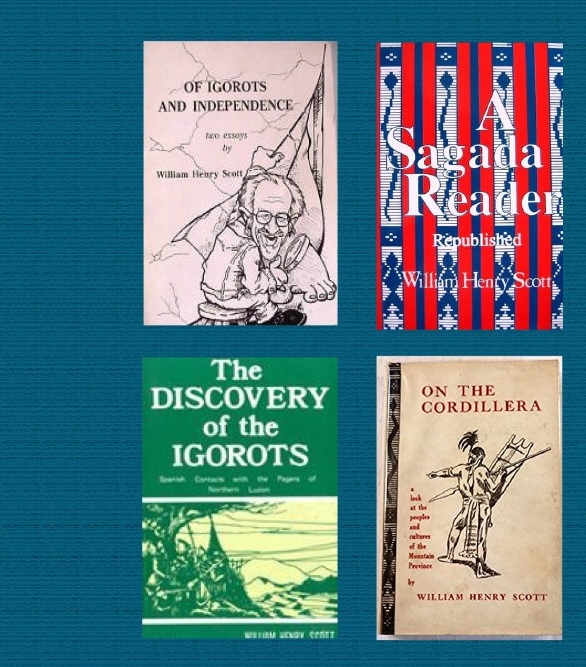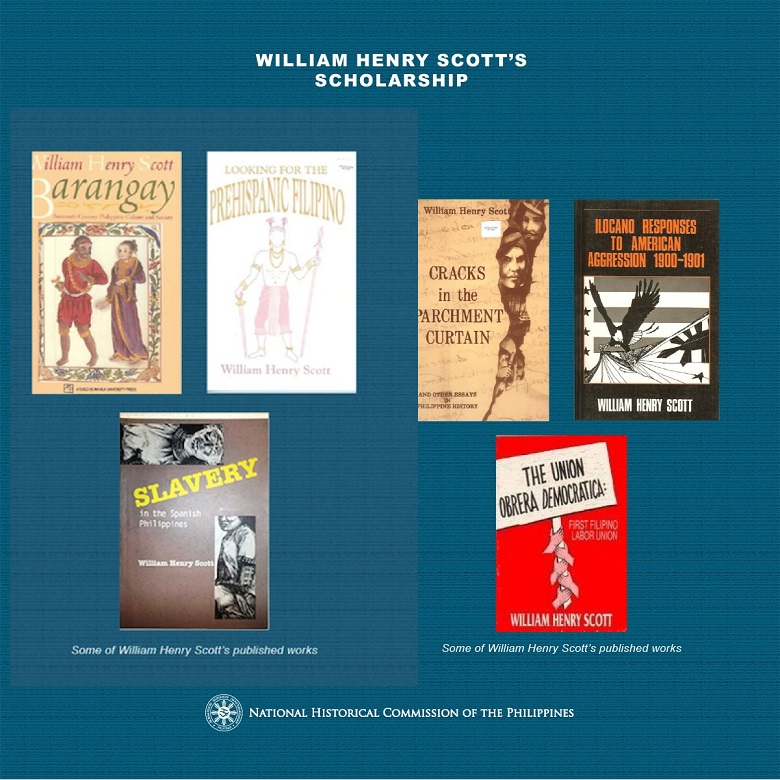
Who is Scotty? A renowned scholar on the culture and history of the Filipino people, William Henry Scott (1921-1993) is well known for his major works on precolonial Philippine society and the history of the Cordilleras.
A most prolific writer, Scott’s missionary, historical, anthropological, and cultural contributions are seen in “more than 170 articles, chapters, and reviews; ten books and monographs; nine edited collections of his and others’ essays; and numerous translations of previously unpublished Spanish documents — over 240 titles in all,” as described by Harold C. Conklin in “A Biographical Note and Bibliography” on Scott. (Reflections on Philippine Society and Culture: Festschrift in Honor of William Henry Scott, 2001).
Historical fact vs. folklore
Scott’s major books include:
A Critical Study of the Pre-Hispanic Source Materials for the Study of Philippine History (1968) Conklin wrote that Scott “surveys, summarizes, and evaluates with great skill the actual documentary, archaeological, and linguistic evidence for determining conditions” in the Philippines before Spain’s arrival.

Discovery of the Igorots: Spanish Contacts with Pagans of Northern Luzon (1974, 1977)
Scott examines the relationship and conflicts between the indigenous and tribal peoples in the Cordilleras and the Spaniards.
In Conklin’s words, Scott broke new ground in these two books, by finding and correcting widely held misconceptions, and “by his example, enthusiastically urges Filipinos and Filipinists to rethink and reinvestigate many aspects of Philippine cultural history.”
A few months before his untimely death, Scott had submitted a manuscript to the Ateneo University Press entitled Barangay: Sixteenth Century Philippine Culture and Society (1994), published a year after his death. An ethnography of 16th century Philippine communities, it has become so popular that it has been reprinted several times.
Life story
Born on July 10, 1921 in Detroit, Michigan, he was baptized Henry King Ahrens, growing up under difficult conditions during the depression era. He changed his name to William Henry Scott in 1939, and everybody called him Scotty.
By 1953, Scott became a lay missionary in the Protestant Episcopal Church in the United States. Assigned to St. Mary’s School, Sagada in 1954, he served as a teacher of English and history and the school principal for many years. He is buried at the Episcopal cemetery in his beloved Sagada.
Scott had left behind 14 foster sons (and one who had passed away), their families, and grandchildren, who plan to establish a foundation in his honor.

Education
Scott graduated with a BA in Chinese language and literature, Yale University, 1951, an MA in church history, Columbia University, 1958 and a PhD in history, University of Santo Tomas, 1968 with Horacio de la Costa, S.J. as his adviser.
For his doctoral studies at the University of Santo Tomas, Scott focused on precolonial history. Examining the Maragtas and the Code of Kalantiaw, he debunked it as the most “deliberate fabrication,” in his oral defense in 1968. In 2004, the National Historical Commission declared that the so-called Code of Kalantiaw has no valid historical basis. The dissertation became the basis of his book, Prehispanic Source Materials for the Study of Philippine Prehistory (1984), and reprinted this year by New Day Publishers.
From the late 1960s to the 1980s, Scott taught church history, Chinese history, Philippine history, and anthropology in Trinity College, St. Andrews Theological Seminary, UST, UP, and others.
Martial Law
Amidst the major issue of the Chico River hydroelectric project, a Marcos project that would have flooded and submerged Sagada and many other places in the Mountain Province, martial law was imposed in 1972.
Arrested a month later, Scott was accused of “seditious activities” and an “undesirable alien,” subject to deportation. Among the “evidences” against him: possession of Mao Zedong’s “red book” and the being the author of “The Igorot Defense of Northern Luzon,” a book about Igorot resistance against Spanish colonial rule, hundred of years before the Marcos regime. Declining the US Embassy’s intervention, he defended himself in a public trial, and all charges against him were dropped.
With great pride, Scott described his time of almost six months in jail as one of the best of his life because he was able to have long and deep conversations with many Filipino intellectuals and prominent anti-Marcos activists.
“One of us”
After his release from prison, he returned to Sagada where a massive crowd at the Dangwa bus station waited for him. Carrying Scott on their shoulders, they cheered, “He is one of us.”
In the local community, Scott is referred to as Lakay or elder, a term of respect as well as a term of endearment for a true friend.
Keep them honest
A year after his death, Scott received the Tanglaw ng Lahi Award from Ateneo de Manila University in 1994 for a whole life spent teaching not only inside the classroom but also the outside world, especially through his hundreds of published scholarly articles and inspirationals which continue “to disseminate and teach honest Philippine history” to succeeding generations of Filipinos.
